
An increasing number of quantum computing companies are emerging globally with the goal of creating operational processors and the hardware and software that enable them. This article looks to provide a high-level overview of the landscape of quantum computing companies for now, and into 2024.
If you’re looking for more information on these companies, enriched by our analysts and updated regularly, you may be interested in exploring our intelligence platform:
Nonetheless, if you would like to offer an edit or suggestion, you can get in touch at our Contact Us page
Quantum Computing in Modern Industries
In sectors like healthcare, cybersecurity, and finance, quantum computing (QC) is poised to present novel avenues for tackling computational challenges. In contrast to other intricate tech fields like artificial intelligence (AI) or virtual reality (VR), quantum computing often appears as an enigma to most individuals, save for its practitioners. There exists limited comprehension regarding the potential of a quantum computer or the factors setting it apart from a classical computer.
Harnessing specialized hardware and software, quantum computers are expected to have the capacity to execute tasks that presently lie beyond the reach of conventional computers. Furthermore, quantum computing companies are actively crafting technologies to enhance the accessibility and usability of this state-of-the-art technology.
As fresh innovations continue to emerge, the realm of quantum computing is experiencing rapid expansion. Let’s delve into the proliferation of quantum computing companies over the past two decades.
The Rise of Quantum Computing Companies
The taxonomy that we have used to classify quantum computing companies has the following sections: “Quantum Computing Giants”, “Hardware-focused Quantum Computing Companies” and “Software-focused Quantum Computing Companies”, as well as a section for key enablers, which is non-exhaustive. In our review, we include circa one hundred quantum computing companies based on data from our Quantum Intelligence Platform.
It was inevitable that we would have to omit many of the players in the supply chain; our Quantum Intelligence Platform has many more organizations within its database than we could include here. The purpose of this article is to highlight both the leaders in hardware and software quantum computing, as well as the important startups in the industry with promising research, products, or services.
Just to give you a heads up, we have also published a few in-depth articles in the past that explore some of the best quantum computing startups, available to read here and here.
The ecosystem of suppliers, hardware companies, and software companies will grow more complex as quantum computing becomes more mainstream. As always, The Quantum Insider will cover them in news stories and include them in our platform. Several quantum security-related players have also been excluded from this analysis, though some of them have been highlighted when appropriate in both the hardware and software sections.
The list of quantum computing companies is current as of mid-December 2023.
Top Quantum Computing Companies
THE CORPORATE GIANTS IN QUANTUM COMPUTING
Among the prominent entities in the quantum computing (QC) arena originating from the United States – Google, IBM, Microsoft, and AWS (Amazon) – only IBM boasts a legacy of over a century in technological innovation. The remaining trio, comprising Google, Microsoft, and AWS, has a (comparatively) shorter computing history.
Notably, other significant contenders, which we’ve encompassed in our consideration, are cognizant of the substantial ramifications that quantum computing and quantum computing enterprises are destined to exert across various domains in the medium and long run. These contenders are initiating their own quantum computing research and development initiatives, driven by the ambition to remain relevant as the industry transcends the era of noisy intermediate-scale quantum (NISQ), advances to fault-tolerant capabilities, and ultimately attains the coveted state of quantum advantage, marking a new era in computation.
1. IBM
Established in 1911 in Endicott, New York, under the stewardship of entrepreneur Charles Ranlett Flint, IBM stands as one of the world’s global technology behemoths. Within the realm of quantum exploration, the IBM Quantum Composer and the IBM Quantum Lab (formerly recognized as the IBM Quantum Experience) jointly compose an online platform. This platform offers both public and premium access to cloud-based quantum computing services facilitated by IBM Quantum. The spectrum of offerings encompasses entry to a range of IBM’s experimental quantum processors, a collection of tutorials elucidating quantum computation, and a gateway to an interactive textbook. As of 2023, this service encompasses dozens of devices, with several devices being available to the public without charge. Through this conduit, users are empowered to execute algorithms and experiments, immerse themselves in instructional materials, and engage with simulations that probe the potentials of quantum computing.
In 2024, it should be noted, IBM Quantum is set to finish constructing a new quantum data center in Ehningen, Germany, thereby introducing local quantum computing resources to Europe.
“Our goal is to achieve quantum advantage as soon as possible. I don’t like to focus so much on dates for specific items without considering instead an entire roadmap to make it possible. To achieve quantum advantage, we need to both increase the performance of the processors and develop a better understanding of how to deal with errors and program a quantum computer.”
— Jay Gambetta, Vice President, IBM Quantum Lab
Guiding the IBM Quantum Lab’s initiatives is Vice President Jay Gambetta, an esteemed IBM Fellow. For a more in-depth exploration of IBM’s trajectory, you can delve into our article spotlighting the evolution of IBM’s commitment to the field of quantum, available here.
Update for 2023:
In June 2023, IBM unveiled a significant milestone, featured in the scientific journal Nature, establishing for the initial time that quantum computers can generate precise outcomes at a magnitude of 100+ qubits surpassing top classical methods.
In December, IBM unveiled the IBM Condor, a groundbreaking quantum processor with 1,121 superconducting qubits, at the IBM Quantum Summit. Alongside this, it introduced the Quantum Heron processor, featuring 133 fixed-frequency qubits and tunable couplers, boasting a 3-5 times performance enhancement over previous models. The summit highlighted these and many other advancements in IBM’s quantum computing technology.
2. GOOGLE QUANTUM AI
Google Quantum AI is actively pushing the boundaries of quantum computing’s capabilities. The focal hub for Google’s quantum efforts is The Quantum Artificial Intelligence Lab, an initiative collaboratively undertaken by Google, NASA, and the Universities Space Research Association. Established in 2013, this lab took the pivotal role in the momentous announcement of claiming quantum supremacy in October 2019.
Google’s software and hardware offerings are tailored for the development of innovative quantum algorithms aimed at addressing immediate practical problems. Among these efforts is Cirq, a Python software library facilitating the creation, manipulation, and optimization of quantum circuits, subsequently executable on quantum computers and simulators. Further, OpenFermion, a library dedicated to compiling and analyzing quantum algorithms for simulating fermionic systems, notably in quantum chemistry, is part of the suite. Additionally, TensorFlow Quantum (TFQ) serves as a quantum machine library, expediting the prototyping of hybrid quantum-classical machine learning models.
Under the guidance of Engineering Director Hartmut Neven, Google Quantum AI has a clear mission to spearhead research into how quantum computing can intersect with machine learning and address complex challenges in computer science. An integral component of Google’s strategy is its meticulously planned quantum roadmap.
Update for 2023:
Google’s Quantum AI researchers achieved a notable milestone by reducing quantum computing errors through the increase of qubits, shifting to treating multiple physical qubits as one logical qubit, and enhancing performance, as highlighted in a company blog post authored by the company’s CEO in February of this year.
3. MICROSOFT
Microsoft, another major contender in the field, stands as the pioneer behind the public cloud quantum computing ecosystem. This ecosystem encompasses an array of solutions, software, and hardware, all accessible through the Azure platform.
Although Microsoft’s origins trace back to its establishment in 1975, the initiation of its quantum research stems from two distinct teams intrigued by quantum computing. The QuArC team, stationed in Redmond, Washington, and overseen by Krysta Svore, delved into the intricacies of constructing quantum circuitry.
In September 2017, during a Microsoft Ignite Keynote, the company unveiled its forthcoming quantum computing programming language, Q#. This innovative language was subsequently introduced in December of the same year as part of the Quantum Development Kit, an offering from Microsoft.
“Microsoft has taken this very risky but high reward approach in trying to make a qubit which on the theory side looks like the very best qubit you can get. But the challenge was that nobody has really seen these Majorana zero modes in real life. But we have done that now, and that’s super exciting. We have to continue to evolve our engineering capabilities, but it really looks like there is a path towards scalable quantum computing now.”
— Peter Krogstrup, Scientific Director, Microsoft’s Quantum Materials Lab in Lyngby, Denmark
Microsoft’s journey in quantum pursuits has encountered its share of contention. In 2018, a team of scientists led by physicist Leo Kouwenhoven at the Delft University of Technology in the Netherlands, under Microsoft’s banner, retracted a significant paper that had been highlighted as a pivotal advancement in practical quantum computing. This paper claimed the discovery of Majorana particles, a long-theorized yet elusive phenomenon. In a bid for transparency, Microsoft announced at Build 2019 that it would open-source the Quantum Development Kit, encompassing the Q# compilers and simulators.
Guiding Microsoft’s quantum project is Julie Love, Partner and Product Leader for Quantum Computing.
Update for 2023:
The company announced several updates earlier this year, including In a Azure Quantum Elements, a new system, that seeks to expedite advancements in chemical and materials science by leveraging the scale of Azure High-Performance Computing (HPC) and the swiftness of AI. Along with this, there was the launch of Copilot in Azure Quantum to assist scientists in utilizing natural language to navigate through complex problems in chemistry and materials science. Finally, Microsoft announced the roadmap for Microsoft’s quantum supercomputer, marking the first milestone made public with corresponding peer-reviewed research, as well as a strategic acquisition into Photonic Inc.
4. AWS BRAKET
Amazon Braket is a fully managed quantum computing service, crafted to expedite the pace of scientific research and software development within the quantum computing domain. Amazon Braket serves as a conduit granting users access to diverse quantum computer variants through the cloud.
Introduced in 2020, the AWS Braket service offers access for individuals to create accounts, log in, and engage in a pay-as-you-go model, capitalizing on the quantum cloud service. This service provides access to quantum annealers from D-Wave, ion-trap processors from IonQ, superconducting processors from Rigetti Computing, Oxford Quantum Circuits, Quera, as well as photonic quantum computers from Xanadu.
Amazon Braket also offers a developer framework that transcends hardware dependencies, streamlining the intricate process of conceiving and executing quantum algorithms. It provides fully managed Jupyter notebooks, a repository of pre-designed algorithms and instructive tutorials, a range of simulation tools, and a plethora of intriguing possibilities for exploration.
“We felt there was enough of a community to really get the most out of a quantum platform, so that’s why we launched Braket. It’s designed to get people up and running quickly, removing the barriers to playing with this technology and fundamentally trying to be a catalyst for innovation.
Fundamentally, AWS all about enabling third parties to build other services and build applications on top of the platform — and that’s exactly the same with quantum computers.”
— Richard Moulds, General Manager, Amazon Braket (AWS Quantum Computing Service)
Update for 2023:
September 2023 saw an article published on the company’s blog written by Jernej Rudi Finžgar et al who shares the latest findings from his research conducted as part of his BMW Ph.D. program. The study was carried out in partnership with the BMW Group, Amazon Quantum Solutions Lab, Technical University of Munich, and Tokyo Institute of Technology, exploring efficient Bayesian optimization protocols for quantum optimization issues utilizing QuEra’s Rydberg quantum computer on Amazon Braket.
In November, AWS announced the launch of an innovative quantum computer chip, designed in-house, that significantly advances error correction capabilities. This new chip is capable of reducing bit flip errors by a factor of 100 through a passive error correction method. Additionally, when combining passive with active error correction techniques, the chip has the potential to perform quantum error correction six times more effectively compared to conventional methods.
5. ALIBABA GROUP
Collaborating with the Chinese Academy of Sciences, Alibaba Group’s cloud computing subsidiary has inaugurated the Alibaba Quantum Computing Laboratory in Shanghai, China. As a prominent participant in the global quantum computing sphere, Alibaba Group is committed to fostering the concept of open-source initiatives within this realm.
Leading these is Yaoyun Shi, serving as the Head of Quantum Lab. In this capacity, he spearheads various initiatives, including the Alibaba Cloud Quantum Development Platform (ACQDP). This platform functions as a simulator-driven development tool tailored for quantum algorithms and quantum computers.
Update for 2023:
In June of this year on the company’s blog, Alibaba Cloud Technology published a post on the developments in Alibaba’s Cloud Computing infrastructure. The company notes a sustained emphasis on research and development underscores its strategy for continuous growth and transformation.
November saw Alibaba’s quantum laboratory shut down, leading to the dismissal of over two dozen employees. This development has sparked widespread speculation among experts, with some questioning whether this closure reflects Alibaba’s financial challenges or indicates broader issues within the quantum technology industry.
6. BAIDU
Baidu hails from China. Its quantum initiative encompasses the establishment of an institute dedicated to quantum computing, focused on the practical application of quantum computing software and information technology. Named the Baidu Quantum Computing Institute, this initiative is under the guidance of Professor Duan Runyao. Professor Duan previously held the position of director at the Centre for Quantum Software and Information at the University of Technology Sydney (UTS). Baidu’s vision encompasses the widespread integration of quantum technology across diverse sectors, including artificial intelligence (AI) and machine learning (ML).
In alignment with this ambition, Baidu has developed a quantum hardware-software integration solution called Liang Xi. This innovation is designed to seamlessly interface with Qian Shi and other third-party quantum computers. This encompasses a 10-qubit superconducting quantum device and a trapped ion quantum device, both developed by the Chinese Academy of Sciences. Furthermore, in 2022 Baidu finalized the design of a 36-qubit superconducting quantum chip equipped with couplers, showcasing encouraging simulation outcomes in various critical measurements.
“With Qian Shi and Liang Xi, users can create quantum algorithms and use quantum computing power without developing their own quantum hardware, control systems, or programming languages. Baidu’s innovations make it possible to access quantum computing anytime and anywhere, even via smartphone. Baidu’s platform is also instantly compatible with a wide range of quantum chips, meaning ‘plug-and-play’ access is now a reality.”
— Runyao Duan, Director of the Institute for Quantum Computing, Baidu
Update for 2023:
During its annual flagship developer conference Baidu Create in late 2022, Baidu unveiled its quantum computing strategy, QIAN, aiming to bridge the gap between quantum hardware and practical applications. QIAN stands for quantum basic research, infrastructure construction, application of quantum technology, and network ecosystem. Through this strategy, Baidu aims to incorporate quantum computing across various industries, working towards a scenario where quantum technology is more accessible.
7. EVIDEN (ATOS COMPUTING)
Within the framework of the French multinational company Atos, there is EVIDEN, a specialized company within Atos that concentrates on quantum technology. This group has introduced the Atos Quantum Learning Machine, a classical computing system capable of simulating quantum systems encompassing 30 to 40 qubits, depending on the specific configuration. Complementing this product, Atos Quantum furnishes a universal quantum assembly programming language known as AQASM, accompanied by additional software resources. These tools empower researchers, engineers, and students to delve into quantum software development and experimentation.
In the domain of quantum hybridization, Atos Quantum occupies a unique position by already enabling various applications, ranging from catalysis design for nitrogen fixation to optimizing smart grids. Moreover, Atos is engaged in two ongoing quantum hybridization projects that are currently underway.
“EVIDEN launched the Atos Quantum Learning Machine (QLM) in 2017, a quantum appliance emulating almost all target quantum processing units with abstractions to connect to real quantum computing hardware when available. We have been very successful with the QLM in large academics or research centers on all continents. In 2021, there was a shift of many commercial companies starting to work on real use cases, and the QLM is the best platform to start these projects without waiting for hardware to be available at scale.
— Eric Eppe, EVIDEN Group Vice President – Portfolio & Strategy – HPC/AI/Quantum & EVIDEN Board Member
Pioneering a hardware-agnostic approach, Atos is among the early quantum computing companies in the development of quantum-powered supercomputers and end-user applications. The company’s aspirations extend to major contributions across numerous domains, encompassing quantum programming and simulation, next-generation quantum-powered supercomputers, consultancy services, and quantum-safe cybersecurity. Atos holds a pivotal role in European-funded quantum computing initiatives. It collaborates with NISC QPU manufacturers to advance new technologies and enhance their efficacy in hybrid computing contexts. This spans domains like hybrid frameworks, containerization, parallelization, VQE, GPU utilization, and more.
Update for 2023:
In April, Atos announced that it had launched “Eviden”, a services-oriented spinoff focused on digital transformation, big data, and cybersecurity.
8. INTEL
Like IBM, Intel boasts a rich heritage in the semiconductor sector, tracing its origins to its establishment in Mountain View, California, in 1968. The company was co-founded by Gordon Moore, renowned for his association with “Moore’s law,” and Robert Noyce, a physicist and co-inventor of the integrated circuit.
“Another big differentiator between Google, IBM and Intel is the type of qubit we are studying. Our qubit looks a lot like a conventional transistor, and conventional transistors are extremely smaller than a superconducting qubit (used by Google and IBM) — our spin qubit technology is roughly a million times smaller than a superconducting qubit. So the hope is that we could scale this technology a lot better than the competition.”
— James Clarke, Director of Quantum Hardware, Intel
Guiding these efforts is James Clarke, who serves as Intel’s Director of Quantum Hardware. Within Intel Labs, the company’s research and development division, they are capitalizing on their extensive expertise in high-volume transistor manufacturing to develop ‘hot’ silicon spin-qubits. These miniature computing units operate at elevated temperatures versus the ultra-low temperatures typically required. Intel’s innovation encompasses three core elements. First, they’re designing ‘hot’ silicon spin-qubits, significantly smaller computing components that function at higher temperatures. Second, the Horse Ridge II cryogenic quantum control chip enables more seamless integration. Lastly, the cryoprober facilitates high-volume testing, contributing to the acceleration of commercialization efforts.
Intel is engaged in both superconducting and spin qubit research. Their superconducting research appears to be primarily affiliated with academic collaborations at Qutech (Delft University). Spin qubits constitute the central focus, with activities spanning Qutech as well as in-house initiatives.
Update for 2023:
In June, Intel unveiled its latest quantum research chip, Tunnel Falls, a 12-qubit silicon chip, extending its availability to the quantum research community. Furthermore, Intel is partnering with the Laboratory for Physical Sciences (LPS) at the University of Maryland, College Park’s Qubit Collaboratory (LQC), a distinguished national Quantum Information Sciences (QIS) Research Center, to propel the advancement of quantum computing research.
9. NVIDIA
Founded in 1993 by Jensen Huang, Chris Malachowsky, and Curtis Priem, NVIDIA now stands out as a prominent player in the technology sector, focusing on the creation and production of advanced computing hardware and software, along with innovative solutions in artificial intelligence.
In March 2023, NVIDIA launched the DGX Quantum, the first-ever GPU-accelerated quantum computing system, integrating the NVIDIA Grace Hopper Superchip with Quantum Machines’ OPX quantum control platform. This system marries advanced classical and quantum computing, supporting functions like calibration, control, and quantum error correction. With the NVIDIA Grace Hopper GPU connected to Quantum Machines’ OPX+ via PCIe, it offers markedly low latency and powers large-scale AI and HPC workloads efficiently, promising up to tenfold performance improvements for quantum-classical research applications.
TOP HARDWARE-FOCUSED QUANTUM COMPUTING COMPANIES
10. ALICE & BOB
Alice & Bob, a French quantum computing firm, is pursuing the creation of an error-corrected, fault-tolerant quantum computer. Their research revolves around self-correcting superconducting quantum bits, called cat qubits.
“In order to fully realize the promise of quantum computing, we have to get a grip on handling quantum errors. Surface codes drive the field toward a scaling bottleneck. Cat qubits enable a roadmap using linear code, with dramatically reduced overhead. […]”
— Théau Peronnin, CEO Alice & Bob
The core of Alice & Bob’s technological advancement involves the evolution of self-correcting superconducting quantum bits, thereby enabling robust and fault-tolerant quantum computing capabilities. In March 2022, the company unveiled an important breakthrough concerning error correction challenges related to qubits, specifically bit flips. This milestone marked the successful compatibility of their cat-qubit stabilization approach with macroscopic bit-flip times. By extending the resilience against bit-flip errors from a previous benchmark of a few milliseconds to an impressive 2 minutes, they exhibited substantial progress. Headquartered in Paris, this quantum computing startup was established in 2020 by Raphaël Lescanne and Théau Péronnin.
Update for 2023:
In July, Eviden, a branch of Atos, and Alice & Bob revealed a collaboration to integrate Alice & Bob’s patented cat qubit technology into QaptivaTM, Eviden’s platform for quantum application development, making it accessible to end users.
11. ALPINE QUANTUM TECHNOLOGIES
Headquartered in Innsbruck, Austria, Alpine Quantum Technologies (AQT) is dedicated to the advancement of trapped ion quantum devices, aiming to construct a complete quantum computer utilizing trapped ion technology and was founded in 2017 by Professor Rainer Blatt, Dr. Thomas Monz, and Professor Peter Zoller, has secured around $34 million in funding.
“If you’ve ever done a tour of a lab with a superconducting quantum computer, you’ll have noticed these sort of ‘oil barrel’ hanging from the ceiling making a ‘tchk, tchk, tchk’ sound. That’s the compressor, running with helium, because it needs to be cold. Our trapped ion project is room temperature. So, besides the vacuum can which is closed, the entire device is standing in a normal office and you can touch all the components and nothing is going to freeze or do anything to you. We are still working on the prototype, but it seems like we can run the entire quantum computer from a normal power plug in the wall. And the next thing is: because the power consumption is low and it works at room temperature, it’s easy to envision our device as being mobile.”
— Thomas Monz, CEO, AQT
AQT’s ion-trap technologies present a potential pathway towards realizing extensive-scale quantum computers, encompassing scalable ion-trap processors and photonic networks that interconnect quantum computing systems.
Update for 2023:
April of this year saw AQT partner with the European flagship project Millenion. The emphasis of the project on modular scalability and accessibility is key to tackling the challenges encountered by quantum computers as they transition from laboratory experiments to industrial-grade technologies.
12. ANYON SYSTEMS
Anyon Systems specializes in the development and deployment of on-premise quantum computers utilizing superconducting qubits. Their solution encompasses exclusive cryogenic technology, quantum electronics, and a sophisticated software stack.
June in the year 2022, Anyon Systems unveiled its latest achievement – the successful transaction of their second quantum computer, which was procured by a prominent high-performance computing center.
Founded in 2014, Anyon Systems holds the distinction of being Canada’s pioneer enterprise dedicated to crafting gate-based quantum computing platforms engineered for achieving universal quantum computation. The company’s headquarters are stationed in Montreal, Canada.
13. ATLANTIC QUANTUM
Atlantic Quantum is developing scalable quantum computers with their approach to noise-protected qubits. This, coupled with adaptable control strategies, lays the foundation for expanding the quantum processor to dimensions requisite for practical real-world applications. Their efforts encompass not only the development of devices but also the provision of control electronics that ensure exceptional accuracy in high quantum gate operations, facilitated by a control system designed for seamless scalability.
Founded in 2022, Atlantic Quantum is the result of a consortium of scientists and researchers hailing from the esteemed Engineering Quantum Systems (EQuS) group at MIT, under the leadership of Prof. William D. Oliver and Principal Research Scientist Simon Gustavsson.
“We believe fault-tolerant quantum hardware is the key to making significant progress in quantum computing. While the market is still maturing, overcoming current hardware limitations is critical — we are focused on removing today’s technical obstacles and accelerating real-world applications of quantum computing.”
— Bharath Kannan, CEO, Atlantic Quantum
Update for 2023:
September saw research reviewed by peers, indicating that Atlantic Quantum’s Fluxonium Qubit Design achieves unprecedented quantum operation fidelities.
14. ATOM COMPUTING
Hailing from Berkeley, California, Atom Computing, established in 2018 by Benjamin Bloom and Jonathan King, pioneers a distinctive approach by utilizing individual atoms as the building blocks for creating scalable quantum computers.
“Atom Computing designed and built our first-generation machine, Phoenix, in less than two years and our team was the fastest to deliver a 100-qubit system. We gained valuable learnings from the system and have proven the technology. […]”
— Rob Hays, CEO & President, Atom Computing
The essence of Atom Computing’s quantum computers lies in their utilization of meticulously controlled atoms, which can be manipulated optically, eliminating the need for conventional wiring. This methodology paves the way for a scalable quantum computing framework.
Update for 2023:
Atom Computing and the U.S. Department of Energy’s National Renewable Energy Laboratory (NREL) revealed a partnership in July to investigate the potential of quantum computing in enhancing electric grid operations.
In October, Atom Computing announced its pioneering next-generation quantum computing platform, boasting a 1,225-site atomic array populated with 1,180 qubits, marking the first instance a company has surpassed the 1,000-qubit milestone for a universal gate-based system.
15. BLEXIMO
Bleximo, another company situated in Berkeley, is a quantum company that is developing application-specific quantum computers using superconducting technology. Their approach encompasses the co-design of both algorithms and hardware, with the ultimate goal of achieving the coveted quantum advantage. Founded in 2017 by Alexei Marchenkov, Bleximo’s groundbreaking quantum accelerators, known as qASIC, are rooted in superconducting qubits. These accelerators collaborate seamlessly with traditional high-powered computers to tackle challenges that are either infeasible or outright impossible to address using standard digital computers alone.
“On the hardware and software side, our strength lies in having a talented mix of engineers — focused on operational execution and issues like scalability, manufacturability and reproducibility — working alongside scientists geared up for ground-breaking applied research.”
— Fabio Sanches, former Head of Quantum Engineering, Bleximo
16. C12 QUANTUM ELECTRONICS
Founded in 2020 and headquartered in Paris, France, C12 Quantum Electronics is on a mission to forge dependable quantum processors through a foundational element: the carbon nanotube. The focus of their technology lies in significantly diminishing error rates, positioning their platform as a contender for noisy intermediate-scale quantum applications.
The bedrock of this innovation has been forged over more than a decade, dedicated to leveraging carbon nanotubes for quantum electronics and is spearheaded by twin brothers Matthieu and Pierre Desjardins.
17. D-WAVE
D-Wave, a pioneering quantum computing enterprise, stands as one of the earliest proponents in this field. The company is dedicated to the design and production of quantum computing systems and superconducting electronics. Established in 1999, D-Wave emerged from the collective vision of Haig Farris, Geordie Rose, Bob Wiens, and Alexandre Zagoskin. Operating from its headquarters in Burnaby, Canada, the company offers quantum annealers and gate-based quantum computers. They are a market leader in the former technology which is being used to solve optimization problems by uncovering optimal solutions.
Notably, August of 2022 witnessed a significant stride for D-Wave as the company stepped into the public realm through a dedicated special purpose acquisition (SPAC) entity.
“From its inception more than 20 years ago, D-Wave has focused on delivering quantum computing products and services that provide the fastest path to practical, real-world applications with customer value. […]”
— Alan Baratz, CEO, D-Wave Systems
Update for 2023:
In July, D-Wave announced that it had achieved listing compliance with the New York Stock Exchange (NYSE). The company, which went public through a SPAC (special purpose acquisition company) merger with DPCM Capital about a year ago, is among a group of fewer than 10 independent quantum firms that have taken this route to public trading.
18. DIRAQ
Diraq’s mission focuses on the development of fault-tolerant quantum computers. A hallmark of their innovation lies in the incorporation of patented CMOS qubits, mirroring the dimensions of contemporary transistors and harnessing identical manufacturing processes. Diraq commands an impressive portfolio encompassing 28 patents and patent applications. The company has shared a roadmap spanning from prototype chips to nanoscale silicon quantum processor chips. This evolution, underpinned by cutting-edge technology, is projected to mark a significant stride in the quantum computing landscape.
“Diraq aims to redefine scalable quantum computing and bring practical commercial applications to the world via billions of qubits on single chip, compared to the hundreds of qubits that exist today. The company is configuring as an end-to-end quantum computing provider — to provide quantum hardware and software as a full stack, cloud accessible service.”
— Andrew Dzurak, CEO, Diraq
Emerging from the shadows in May 2022, Diraq hails from the bustling landscape of Sydney, Australia. At its helm stands CEO Andrew Dzurak, a distinguished professor at UNSW Sydney.
Update for 2023:
September saw Diraq and quantum control infrastructure software developer Q-CTRL collaborating on three government-sponsored projects in quantum computing, funded by the NSW Office of the Chief Scientist and Engineer’s Quantum Computing Commercialisation Fund (QCCF) and the U.S. Army Research Office.
19. EEROQ
EeroQ is designing a chip that harnesses the unique potential of electrons within a superfluid helium medium. This technology uses electrons on helium quantum computers, offering a potential array of advantages. Situated in Chicago, EeroQ was founded in 2016. The enterprise is a testament to the collaborative vision of Nick Farina, Faye Wattleton, Professor Johannes Pollanen, Dr. David Rees, David Ferguson, and Hannah Parnes.
“Electrons on helium is a novel technology and very different from other qubit platforms, and it’s quite fun to describe. In our approach to building a quantum computer, the qubit is an electron trapped in vacuum above the surface of superfluid helium, using microwaves for quantum logic gates. This is one of the cleanest systems known to exist, so while it’s challenging to work with it offers a somewhat natural “home” for quantum computation.”
— Nick Farina, CEO, EeroQ
Update for 2023:
In July 2023, EeroQ successfully reached tape-out for its new chip at a US semiconductor foundry, signifying that the design is complete and the chip is ready to proceed to fabrication and production. EeroQ emphasizes that this development marks a substantial step towards achieving a quantum computer design that is not only powerful but also compact and scalable, addressing some of the critical challenges in the field.
20. INFLEQTION (FORMERLY COLDQUANTA)
Hailing from Boulder, Colorado, Infleqtion (formerly ColdQuanta) has carved a niche by offering quantum technologies leveraging laser-cooled and ultra-cold atoms. Their expertise spans the gamut from developing and crafting instruments, components, and systems for a diverse spectrum of scientific and industrial quantum applications. These applications encompass cold atom experimentation, quantum simulation, quantum information processing, atomic clocks, and inertial sensing. Moreover, the company’s achievements encompass the creation of a cloud-based quantum computer named Hilbert.
“To me, what’s really attractive about ColdQuanta [Infleqtion] is the modality that we’re using, the fundamental toolkit, as I say, is something I’ve been working with my entire life, it’s lasers and scanners and receivers. And, as I like to say, we’re gonna lasso some atoms and put them in some cool configurations and watch what they do under certain conditions. And from that vast information comes out of it.”
— Scott Faris, CEO, Infleqtion
ColdQuanta’s inception in 2007 was the brainchild of Dr. Dana Anderson and a cohort of visionaries. The company’s dedication to expanding in quantum was underscored in May of this year when they successfully acquired the quantum software company Super.Tech.
Update for 2023:
The University of Texas at Austin and Infleqtion agreed to create a quantum manufacturing center of excellence in October 2023. Following Infleqtion’s recent Austin office opening, they’ll partner with UT’s Texas Institute for Electronics (TIE).
21. IQM
Shifting our attention to Europe, we have IQM Finland. This enterprise was established in 2018 by a group including Jan Goetz, Juha Vartiainen, Kuan Yen Tan, and Mikko Möttönen.
The company’s primary focus is crafting scalable hardware tailored for universal quantum computers, with a specific emphasis on superconducting technology. IQM is actively working on its next-generation quantum processors, utilizing in-house technology that enables a significant enhancement in the clock speed of these processors.
Its current objective is to showcase unparalleled speed in qubit reset and readout within the industry. What sets IQM apart is its distinctive strategy of progressively integrating higher levels of specialization into the process, leading to the construction of robust, application-specific quantum computers. Unlike numerous competitors opting for the ‘cloud’ approach, IQM concentrates on developing computers tailored for research and supercomputing centers.
“Today’s chips shortage has exposed just how dependent the world is on semiconductor manufacturers in Asia. Quantum processors give us an opportunity to learn from this and become self-reliant first, and a global provider for quantum chips in the future.”
— Jan Goetz, CEO, IQM
Update for 2023:
In October 2023 VTT Technical Research Centre of Finland and IQM Quantum Computers announced the completion of Finland’s second quantum computer, boasting a capacity of 20 qubits. This development not only reinforces Finland’s commitment to investing in quantum computing technology but also enhances its standing in the global quantum community. This follows the country’s initial foray into the quantum realm in 2021, with the completion of its first 5-qubit quantum computer, demonstrating a significant advancement in capability and investment in just two years.
The company also aims to launch a 54-qubit system in 2024, providing early users the opportunity to incorporate this technology into their processes and discover its potential. Following this, the goal is to create a 150-qubit quantum system by 2025, ultimately striving to attain quantum advantage.
22. IONQ
IonQ specializes in trapped ion quantum computing which is available on-premise, on IonQ’s Cloud, and through the Amazon Braket platform. IonQ, headquartered in College Park, Maryland, was funded in 2015, through the collaborative efforts of Chris Monroe and Jungsang Kim and went public through a SPAC in 2021.
In a significant development unveiled in May 2022, IonQ introduced its latest quantum iteration, IonQ Aria. This advanced quantum system is slated for initial availability to a select group of developers, partners, and researchers in 2022, with broader customer access available this year. At the core of Forte’s innovation lies the incorporation of acousto-optic deflector (AOD) technology. This revolutionary addition empowers IonQ to dynamically steer laser beams, steering the course of quantum gates towards individual ions. The AOD’s ingenious design aims to mitigate noise and surmount variations in ion positioning, effectively enhancing fidelity in lengthy chains of trapped ions – a pivotal factor in the scalability of quantum computing. Moreover, the system affords the flexibility to tailor key parameters such as qubit and gate configuration according to user requirements, resulting in a profoundly dynamic and adaptable quantum setup.
“IonQ Forte is further proof that high-performance quantum computers can be designed and built so both qubit count and gate fidelity improve simultaneously. We expect that this will lead to quantum computers with increasing algorithmic qubit numbers that will enable the search for solutions to the most complex problems of our time. IonQ’s quantum systems, including Aria and Forte, are at the forefront of achieving practical utility. The most impactful quantum computing applications will come to light when leading innovators seeking new ways to tackle their formidable problems get to work with the best systems, and customize them for their unique needs. We can’t wait to get these systems in people’s hands.”
— Jungsang Kim, CTO, IonQ
Update for 2023:
September was notably active for IonQ. During the Quantum World Congress, the company unveiled two innovative systems named Forte Enterprise and Tempo, both designed with rack-mountability in mind, allowing them to be seamlessly integrated into conventional data centers. Furthermore, just a day prior at the HPC and AI on Wall Street conference, IonQ confidently projected the attainment of quantum advantage within the next 2–3 years, leveraging the capabilities of these newly introduced systems.
We understand IonQ is the highest-funded pure-play quantum computing in the world.
23. NORD QUANTIQUE
Nord Quantique is at the forefront of advancing superconducting circuitry tailored to effectively counteract errors on individual qubits. Based in Sherbrooke, Canada, Nord Quantique entered the market in 2020, founded by Julien Camirand Lemyre and Philippe St-Jean.
The essence of Nord Quantique’s innovation lies in its pursuit of bosonic codes, strategically implemented through superconducting circuits. The utilization of bosonic systems inherently opens up a more expansive encoding arena, notably simplifying the safeguarding of quantum information against disruptive interactions and errors. This process is integral in preserving the integrity of quantum data. Superconducting circuits play a pivotal role in orchestrating high-performance bosonic codes, equipping researchers with a versatile toolkit for precision engineering.
“We embrace the great technological challenges that high-performance quantum computing demands — and we’re on the path to develop ground-breaking innovations.”
— Julien Camirand Lemyre, President & CTO, Nord Quantique
24. ORCA COMPUTING
Based in London, UK, ORCA Computing was founded in 2019 through the collaborative efforts of Richard Murray, Cristina Escoda, Josh Nunn, and Ian Walmsley. At the heart of its mission lies the development of a modular quantum computing platform harnessed by photonic technology.
ORCA Computing is anchored by its unique offering with the capacity to retain photons within its distinctive quantum memory. This quantum memory acts as a strategic buffer, effectively surmounting a fundamental challenge inherent to photonic quantum computing: the intrinsically probabilistic nature of qubit generation. AIn June 2022, ORCA Computing unveiled a partnership with the UK’s Ministry of Defence. This collaborative venture is geared towards the creation of a quantum computer specifically tailored to delve into defense applications, marking a significant stride in the fusion of quantum technology and defense innovation.
“One of the most interesting properties of photonic qubits is that they are ‘in flight’. You can pulse a source so that it produces multiple photons in a chain within a single length of optical fibre”. A highly efficient source could produce a chain of a million photons, although it would not be error corrected, our early results show that this could be an attractive method to scale the quantum system.”
— Richard Murray, CEO, ORCA Computing
Update for 2023:
In May of this year, ORCA Computing started collaborating with NVIDIA to integrate and execute algorithms that combine quantum and classical computing capabilities.
November saw ORCA Computing chosen by the Poznań Supercomputing and Networking Center (PSNC) to supply two PT-1 quantum photonics systems. As part of the Polish program, these systems will be set up at PSNC’s advanced computing data center in Poznań, Poland, enhancing their quantum computing efforts in various fields such as biology, chemistry, and machine learning.
See also: ORCA Computing to Provide Poznań Supercomputing And Networking Center With First Quantum Computers
25. ORIGIN QUANTUM
Origin Quantum offers an array of Quantum Computing solutions. Its portfolio encompasses full-stack QC solutions including the development of cutting-edge quantum dot-based chips and superconducting technology-reliant six-qubit chips. Expanding its offerings, the company has introduced Qpanda 2.0, an advanced development kit tailored for conducting experiments and crafting quantum circuits on quantum computers. Additionally, Origin Quantum has rolled out a suite of tools including VQNet, a Machine Learning framework, QRunes, a quantum programming language, and Qurator, an integrated development environment. The company’s forward-thinking initiatives traverse the entirety of the quantum computing stack, encompassing control systems, precision instruments, cryogenic equipment, as well as room-temperature hardware such as amplifiers. In a bold step forward, they delve into diverse applications, including quantum chemistry with ChemiQ, fluid dynamics through OriginQ QCFD, and the intricacies of option strategy and portfolio optimization.
Established in Hefei, China, Origin Quantum’s dates back to 2017, initiated by the collaborative vision of Guang-can Guo and Guo-ping Guo.
Update for 2023:
We reported earlier this year that the company had successfully sold its inaugural device, positioning China as the third nation to boast a commercial enterprise in the quantum computer sector. Origin Quantum launched its first quantum computer, marking China as the third country, after Canada and the U.S., to develop a full quantum computer system.
Its 24-qubit Wuyuan quantum computer, based on superconducting chip technology, has been operational and was supplied to a user over a year ago. The company’s founder, Guo Guoping, predicts this technology will significantly affect daily life in the next three to five years.
26. OXFORD IONICS
Established in 2019, Oxford Ionics is dedicated to building quantum computers with trapped ion qubits combined with noiseless electronic qubit control technology.
“The great challenge in quantum computing is scaling whilst improving performance. There are technologies that can be fabricated at scale but don’t perform, and there are technologies that perform but don’t scale. Our electronic control is uniquely placed to do both. Working with Infineon and its mature and flexible semiconductor process, allows us to speed up the accessibility of a commercial QPU. Due to our market-leading error rates, these processors need up to 10,000 times fewer qubits to solve useful problems than other technologies.”
— Chris Ballance, Co-Founder, Oxford Ionics.
Co-founded by Chris Ballance and Tom Harty, Oxford Ionics’ technology aims to mitigate quantum noise, which encompasses errors and disturbances arising from fluctuations in photon patterns and electromagnetic fields within the device. The convergence of Oxford Ionics’ electronic qubit control (EQC) technology with Infineon’s engineering and manufacturing capabilities, coupled with their quantum technology expertise, aims to establish the framework for producing quantum processing units (QPUs) with capacities of hundreds of qubits within the upcoming five years. The overarching objective is to transition quantum computing from a theoretical effort in research laboratories to practical solutions in various industries.
Update for 2023:
September saw Oxford Ionics obtain £2 million in funding from the UK’s National Security Strategic Investment Fund (NSSIF) to bolster its approach of amalgamating trapped ions with electronics seamlessly integrated into silicon chips, promising advancements in quantum computing technology.
27. OXFORD QUANTUM CIRCUITS
Oxford Quantum Circuits (OQC), based in Oxfordshire, UK, distinguishes itself as another notable enterprise in the region. OQC’s quantum computer is a self-contained operational entity, encompassing the control system, hardware, and software within its framework. The foundational intellectual property centers around the Coaxmon, a distinct qubit variant, characterized by its three-dimensional design. This architectural approach strategically relocates essential components off the primary chip, fostering enhanced scalability.
“Our vision is to build a truly scalable, flexible quantum computer. We’re building the quantum computer itself, as well as the qubits, based on technology that was developed by Dr. (Peter) Leek at the University of Oxford, where the company started. And that’s really the core of what we do.”
— Ilana Wisby, CEO, OQC
Update for 2023:
In April, OQC (along with Fujitsu) was chosen by the Spanish supercomputing center, CESGA, to lead in the delivery of cutting-edge computing solutions.
In November at the Global Investment Summit, OQC announced a significant milestone with Japan’s leading venture capital fund, SBI Investment, spearheading their $100 million funding round. Concurrently, OQC unveiled the public availability of their enterprise-ready quantum computing platform, OQC Toshiko. This infusion of funds is set to accelerate OQC’s research and development efforts, aiming to bring enterprise-ready quantum computing solutions to businesses worldwide.
28. PASQAL
PASQAL uses arrays of neutral atoms to construct its quantum computer. The origins of this achievement trace back to the foundational research carried out by Antoine Browaeys and Thierry Lahaye at Institut d’Optique (IOGS, CNRS). Their work has showcased the simulation of intricate many-body problems that are beyond the capabilities of classical High-Performance Computers.
“Running algorithms on Pasqal’s neutral-atom hardware opens the door to unique capabilities no other quantum system offers.”
— Georges-Olivier Reymond, CEO, PASQAL.
The Fresnel analogue quantum computer has been specifically adopted within the scope of the pan-European HPCQS project. This strategic move aligns with their overarching objective of establishing and coordinating a cloud-based, federated European infrastructure. The infrastructure entails the seamless integration of two quantum computers, each steering over 100 qubits. Moreover, the project aims to develop quantum HPC hybrid applications tailored for end-users.
Headquartered in Palaiseau, France, PASQAL was established in 2019 by Georges-Olivier Reymond, Christophe Jurczak, Professor Alain Aspect (renowned as the “father of the second quantum revolution” and Nobel Prize winner), Dr. Antoine Browaeys, and Dr. Thierry Lahaye.
Update for 2023:
In January, PASQAL raised €100 million in a Series B equity funding round. Temasek spearheaded this round as a new investor, with participation from other new financial backers including the European Innovation Council (EIC) Fund, Wa’ed Ventures, and Bpifrance. Existing investors Quantonation, the Defense Innovation Fund, Daphni, and Eni Next also contributed.
29. PHOTONIC INC
Like D-Wave, Photonic Inc is situated in Burnaby, Canada, and directs its efforts toward the creation and production of top-tier quantum technologies rooted in silicon. Notably, Photonic employs electron spins as its qubits, employing photonics to interconnect them seamlessly.
Emerging from the Silicon Quantum Technology Lab at Simon Fraser University, Photonic was established in 2019 by the collaborative efforts of Paul Terry and Stephanie Simmons.
Update for 2023:
In November, Photonic’s announcement of securing $100 million in a funding round from Microsoft. This funding round, spearheaded by Microsoft and BCI, along with contributions from various other investors, represents a significant stride towards the practical application of quantum computers. This collaboration is particularly noteworthy for its focus on Photonic’s innovative method, which involves photonically linked silicon spin qubits.
30. PLANQC
Debuting from stealth mode in June 2022, planqc is a quantum computing venture specializing in neutral atoms. It is the inaugural early-stage enterprise to emerge from the Munich Quantum Valley. The founding ensemble of planqc, comprising Alexander Glätzle, Sebastian Blatt, Johannes Zeiher, Lukas Reichsöllner, Ann-Kristin Achleitner, and Markus Wagner, unites extensive international research expertise in the domain of neutral-atom quantum technologies.
The company is poised to advance its quantum technology. This technology foundation rests upon the precision harnessed by atomic clocks, the capabilities of quantum gas microscopes, and the high-speed potential of Rydberg gates.
“Our atoms are more than a million times colder than deep space and over a thousand times colder than superconducting qubits used by IBM or Google, and yet we can run our computers in a room-temperature environment due to the near-perfect isolation of our qubits from the surrounding. We already routinely trap and control more than 2000 atoms in our optical lattice simulators at MPQ.”
— Johannes Zeiher, Co-founder, planqc
Update for 2023:
In May the German Aerospace Center (DLR) chose planqc to create a scalable digital quantum computing platform utilizing neutral atoms, aiming to showcase practical applications of quantum algorithms in solving real-world issues. This project is valued at 29 million EUR. Collaborating with Menlo Systems and ParityQC, planqc will receive essential support in laser systems, software, and architecture development. This marks a significant milestone as the first European sale of a digital quantum computer based on neutral atoms.
31. PSIQUANTUM
PsiQuantum, headquartered in Palo Alto, California, was established in 2016 by its founding members Jeremy O’Brien, Terry Rudolph, Peter Shadbolt, and Mark Thompson. The company is engaged in the development of qubits using photons, which are individual particles of light. These photons are channeled along pathways integrated into a silicon chip. Through the use of mirrors, the photons are manipulated into a state of entanglement. Fusion measurements are employed as gates in this quantum computing process. PsiQuantum asserts that this approach represents the most practical near-term solution for constructing a commercially viable quantum computer with a sufficient number of qubits.
“We use a superconducting single-photon detector, which can achieve the necessary efficiencies without a ton of development. It’s worth noting those detectors run in the ballpark of 4 Kelvin. So liquid helium temperature, which is still very cold, but it’s nowhere near as cold as milli-Kelvin temperatures required for superconducting qubits or some of the competing technologies.”
— Peter Shadbolt, CSO, PsiQuantum
Update for 2023:
In March, PsiQuantum inaugurated its cutting-edge research and development center at the STFC’s Daresbury Laboratory in the UK. The establishment of this facility was made possible with a £9 million investment from the UK government’s Department for Science, Innovation and Technology (DSIT).
32. QUANTUM COMPUTING INCORPORATED
Quantum Computing Inc (QCi) was founded in 2018 and is headquartered in Leesburg, Virginia. QCi is advancing quantum computing technology for practical business solutions. The company’s accessible, affordable quantum hardware and software operate at room temperature with minimal power requirements, offering speed, accuracy and security at a lower cost. QCi’s unique nanophotonic-based technology applies to both quantum computing and quantum sensing. Its Dirac series addresses binary and integer optimization problems using over 11,000 and 1,000 qubits respectively, leading in variable count and problem size in today’s quantum computing. QCi also develops quantum applications in AI, cybersecurity, and remote sensing, including its reprogrammable Quantum Random Number Generator and LiDAR products.
In May 2022, QCi successfully acquired QPhoton. This acquisition has resulted in QPhoton becoming a wholly-owned subsidiary of QCi, thus equipping QCi with both a hardware (QPU) and software offering.
“It is central to QCi’s mission to deliver practical and sustainable value to the quantum computing industry. QCi’s innovative software solutions deliver expansive compute capabilities for today’s state-of-the-art QPU systems and offer great future scalability as those technologies continually advance. […]”
— William McGann, Chief Operating & Technology Officer, QCi
33. QILIMANJARO
Qilimanjaro, headquartered in Barcelona, Spain, was established in 2019 by its co-founders Artur García-Sáez, Jordi Blasco, José Ignacio Latorre, Pol Forn-Díaz, and Victor Canivell. The company’s integrated hardware and software team is currently dedicated to developing coherent quantum annealing architectures with high-quality qubits. Its primary focus is on delivering scalable application-specific quantum processors and services, along with user-friendly cloud access, to effectively tackle complex optimization and machine learning challenges.
In the short term, Qilimanjaro offers services to help businesses prepare for the quantum era, particularly by providing expertise in quantum algorithms, quantum simulation, and classical/quantum computing approaches. Remarkably, within its first year of operation, the company has already secured significant customer contracts and has emerged as a crucial contributor to the European Commission’s AVaQus FET-Open H2020 project on quantum annealing. Qilimanjaro originated as a spin-off of the Barcelona Supercomputer Center (BSC), the University of Barcelona (UB), and the Institute of High-Energy Physics (IFAE).
Update for 2023:
In July, the Qilimanjaro-GMV joint venture successfully reached its first major milestone in constructing a quantum computer at BSC, enabling remote access to a 5-qubit quantum chip. This groundbreaking chip is fully operational at the Qilimanjaro Quantum Computing Technology laboratory within the Institut de Fisica d’Altes Energies (IFAE) in Barcelona, marking the establishment of the first quantum computer on Spanish soil.
34. QUERA
QuEra Computing, headquartered in the Boston metropolitan area, was established in 2019 by its co-founders Mikhail Lukin, Markus Grenier, Vladan Vuletic, Dirk Englund, and Nathan Gemelke. The company leverages groundbreaking research on neutral atoms, originally developed at Harvard University and the Massachusetts Institute of Technology, as the foundation for its world-leading scalable, programmable quantum computing solution. QuEra is recognized as a full-stack provider, encompassing not only hardware but also algorithm development.
“There is an enormous opportunity to make headway on some of today’s most critical –and presently impossible — problems that impact nearly every one of us. With our first machine, we are excited to begin to demonstrate what quantum computers can do for humanity.”
— Alex Keesling, CEO, QuEra
Update for 2023:
August saw QuEra Computing unveil flexible access options for AWS to meet diverse customer needs in computing, compliance, and security.
35. QUANDELA
Quandela, established in 2017 by Niccolo Somaschi, Pascale Senellart, and Valerian Giesz, originated as a spinoff from the Centre for Nanoscience and Nanotechnology at the French National Center for Scientific Research (CNRS). The company’s headquarters are situated in Palaiseau, a southern suburb of Paris, where it specializes in the development of solid-state sources of quantum light tailored for various quantum applications.
“Given the recent technological advances in the development of solid-state quantum light emitters, it is time to explore the full potential of this technology for large–scale quantum computing. Quandela is one of the international leaders in the technology, with all the resources to boost further developments and integrate the blocks needed to build computing platforms in a modular way.”
— Niccolo Somaschi, CTO, Quandela
Quandela is the creator of Prometheus, a single photon source with a wide range of applications, spanning quantum cryptography, quantum computation, and quantum sensors. Furthermore, the company offers a cybersecurity enhancement solution featuring a two-qubit quantum processor.
In addition to its hardware offerings, Quandela recently introduced Perceval, a photonic quantum computing software platform.
Update for 2023:
In October, Quandela delivered its inaugural quantum computer, MosaiQ, to a data center owned by OVHcloud, marking OVHcloud as the first European cloud services provider to possess a quantum system that operates on photonic processors.
36. QUANTWARE
QuantWare, headquartered in Delft, the Netherlands, specializes in the development and sale of quantum hardware, including Quantum Processing Units (QPUs) and attenuators.
This year, QuantWare was chosen to supply quantum processing units for Israel’s inaugural fully operational quantum computer. Its 64-qubit processor, named ‘Tenor’, offers over double the qubits of its prior largest QPU, while also being more cost-effective.
QuantWare was founded in 2021 by Alessandro Bruno and Matthijs Rijlaarsdam.
Update for 2023:
In March, QuantWare raised €6 million in a seed funding round, led by Forward.One.
37. QUANTINUUM
Quantinuum is the result of a collaboration between two prominent entities: Cambridge Quantum Computing (CQC), a British company specializing in quantum software and operating systems, and Honeywell Quantum Solutions (HQS), a subsidiary of the U.S.-based Honeywell corporation with expertise in building Ion Trap quantum computers.
This venture brings together trapped-ion quantum hardware and software, effectively establishing a comprehensive full-stack quantum computing company. In a noteworthy development announced in June 2022, Quantinuum unveiled a significant upgrade to its System Model H1 technology. This upgrade included the expansion to a robust twenty fully connected qubits, along with an augmentation in the capacity for concurrent quantum operations. Furthermore, the number of gate zones was increased from three to five, enhancing the capabilities of the H1-1 system to perform more quantum operations simultaneously and allowing for greater parallelization in circuit execution.
This year, however, researchers from Quantinuum, in collaboration with partners, successfully demonstrated the initial fault-tolerant technique utilizing three logically encoded qubits. This was achieved on the Quantinuum H1 quantum computer, which is powered by Honeywell, to execute a mathematical operation.
Cambridge Quantum Computing (CQC), a key player in this collaboration, boasts expertise in quantum software, notably offering a quantum development platform (t|ket / TKET) and enterprise applications spanning quantum chemistry (EUMEN), quantum machine learning (QML), and quantum-augmented cybersecurity (IronBridge/Origin). CQC also introduced an open-source software toolkit for Natural Language Processing on Quantum Computers called Lambeq. The company has released InQuanto, a Python-based quantum chemical software platform tailored for executing chemistry algorithms on current quantum hardware. Notably, the research for InQuanto was initiated under the EUMEN project and was built upon the TKET platform.
Quantinuum, established in 2021, is led by CEO Ilyas Khan, who founded Cambridge Quantum in 2014, and President and Chief Operations Officer Rajeeb Hazra, who replaced Tony Uttley this year, the founder of Honeywell Quantum Solutions, where he served as President. This collaboration marks a significant stride in advancing the field of quantum computing through the fusion of hardware and software expertise from two renowned entities.
“Quantinuum’s trapped–ion quantum computing roadmap is designed around continuous upgrades, enabled our flexible architecture and our precision control capabilities. This combination provides for outstanding, first–of–its–kind achievements that help accelerate the entire industry.”
— Tony Uttley, former President & COO, Quantinuum
Update for 2023:
October saw researchers from Quantinuum, QuTech (Delft University of Technology), and the University of Stuttgart achieve a breakthrough in quantum computing by demonstrating the first fault-tolerant method utilizing three logically encoded qubits on the Quantinuum H1 quantum computer.
38. QUANTUM BRILLIANCE
Quantum Brilliance (QB) specializes in the development of a quantum computing platform that operates seamlessly at room temperature, eliminating the necessity for intricate cooling systems. The company has successfully engineered a cutting-edge two-qubit diamond quantum “accelerator” employing synthetic diamonds, and it functions efficiently at room temperature in any environmental setting.
Headquartered in Canberra, Australia, Quantum Brilliance was established in 2019.
Update for 2023:
In February, the company announced an $18 million USD fundraise, using the cash injection to expand international operations, deliver hardware and software products to customers, and improve manufacturing and fabrication techniques for its quantum computing technology.
39. QUANTUM CIRCUITS
Quantum Circuits (QCI) is advancing full-stack quantum computing through the utilization of superconducting devices and an adaptable, expandable architecture. Headquartered in Madison, Wisconsin, QCI has secured $18 million in funding.
Founded in 2015, the company is the brainchild of three distinguished experts in quantum devices and information processing: Michel Devoret, Luigi Frunzio, and Robert Schoelkopf. These luminaries in their respective fields originate from the Department of Applied Physics at Yale University.
40. QUANTUM MOTION
Quantum Motion, a quantum computing firm, is pioneering the development of a scalable array of qubits using widely available silicon technology. The company harnesses CMOS processing to achieve a high-density qubit architecture that can be scaled up significantly to address real-world quantum computing challenges.
“We’re hacking the process of creating qubits, so the same kind of technology that makes the chip in a smartphone can be used to build quantum computers. It has taken 70 years for transistor development to reach where we are today in computing and we can’t spend another 70 years trying to invent new manufacturing processes to build quantum computers. We need millions of qubits and an ultra-scalable architecture for building them, our discovery gives us the blueprint to shortcut our way to industrial scale quantum chip production.”
— John Morton, Founding Director, Quantum Motion
Quantum Motion has its headquarters in London and was established in 2017 by Professor Simon Benjamin of Oxford University and Professor John Morton from UCL.
Update for 2023:
In February, Quantum Motion raised over £42 million in an equity funding round. The funding allowed the company to realize its vision of building a quantum computer using standard foundry processes, supported by a world-leading team.
41. QUANTUM SOURCE
Headquartered in Rehovot, Israel, Quantum Source is dedicated to advancing the scalability of quantum computers to encompass millions of qubits. They achieve this ambitious goal through pioneering developments in photonic technology, specifically by crafting a quantum processor that intertwines photons. Quantum Source is the first Israeli company to secure funding for their pioneering work in the realm of qubits, offering a promising alternative path to practical quantum computing. Their distinctive approach involves the creation of chips that can be manufactured without the need for specialized facilities and operate without the requirement for cooling, a critical differentiator from many other qubit modalities.
Founded in 2021 by a team consisting of Oded Melamed, Gil Semo, Dan Charash, and Professor Barak Dayan from the Weizmann Institute of Science, Quantum Source emerged from stealth mode in July of 2022.
Update for 2023:
May saw Quantum Source announce the appointment of former Israeli Prime Minister Naftali Bennett to its board of directors.
42. QUIX QUANTUM
QuiX Quantum, founded in 2019 by Hans van den Vlekkert and headquartered in Enschede, Netherlands, has emerged as Europe’s foremost quantum computing firm specializing in photonics. With strategic office expansions to Amsterdam in the Netherlands and Ulm and Stuttgart in Germany by 2022, the company reinforces its presence in the quantum computing sector.
QuiX Quantum operates as a fabless and horizontally integrated organization, dedicating its expertise to the development of quantum computing through integrated photonics. As of late 2023, QuiX Quantum continues to advance in this field, focusing on enhancing quantum computing technologies and solutions based on photonics, while also expanding its influence and operations in the European quantum computing market.
43. RIGETTI COMPUTING
Based in Berkeley, California, Rigetti Computing is a company specializing in both hardware and software development for quantum computers. They are recognized for their work in creating superconducting qubit computers and the corresponding software infrastructure. The Rigetti Forest Software Development Kit encompasses essential components such as pyQuil, the Rigetti Quil Compiler (quilc), and the Quantum Virtual Machine (qvm).
“[…] we’ve reached a critical milestone in the emerging quantum advantage era. Our machines are now at a scale and speed where they can process the real-world data sets that underpin high-impact applications. We believe these systems give researchers and enterprises the best platform to pursue quantum advantage on real problems.”
— Chad Rigetti, former CEO, Rigetti Computing
Furthermore, Rigetti provides access to its quantum computers through the cloud via the Quantum Cloud Services platform. Notably, they offer an 80-qubit Rigetti processor, which is accessible through Rigetti Quantum Cloud Services and AWS, representing the world’s pioneering multi-chip quantum processor. In June 2022, Rigetti introduced the 32-qubit Aspen-series quantum computer in the UK, marking the company’s inaugural quantum computer offering in the UK market. This system will be made available to their UK partners via cloud access through Rigetti QCS.
Founded by Chad Rigetti in 2013, Rigetti Computing has successfully secured approximately $300 million in funding up to the present. In March of 2022, the company underwent a public listing through a merger with a Special Purpose Acquisition Company (SPAC).
Update for 2023:
Late in 2022, Chad Rigetti, founder, President, and CEO of Rigetti Computing, stepped down from the chief executive role to focus on advancing the company’s products and technology and officially left the business in early 2023.
44. SEEQC
SEEQC, headquartered in Elmsford, New York, was established in 2019 by John Levy, Oleg Mukhanov, Matthew Hutchings, and Shu-Jen Han.
SEEQC is pioneering a revolutionary approach to harness the potential of quantum computing. They are developing a comprehensive Digital Quantum Computing solution that integrates classical and quantum computing into an all-digital architecture through a system-on-a-chip design. This innovative approach leverages superconductive classical co-processing to effectively address the efficiency, stability, and cost challenges inherent in traditional quantum computing systems. SEEQC’s mission is to redefine the landscape of quantum computing and make it more practical and accessible for all.
“Our multi-layer superconductive electronics chip fabrication facility is among the most advanced in the world. This facility powers the development and manufacturing of superconductors for customers today and is an important research and development facility for the commercially viable quantum computing systems of tomorrow.”
— John Levy, CEO, SEEQC
Update for 2023:
In September, SEEQC started a collaboration with NVIDIA on a chip-to-chip link between quantum computers and GPUs.
45. SILICON QUANTUM COMPUTING
Silicon Quantum Computing (SQC) is a company based in Sydney, Australia, with a mission to commercialize the cutting-edge research generated by the Australia Centre of Excellence for Quantum Computation and Communication Technology. SQC has a bold vision of unveiling a 10-qubit quantum integrated circuit prototype in silicon by the year 2023. In a significant milestone, in June 2022, Silicon Quantum Computing proudly introduced its inaugural quantum integrated circuit. This remarkable achievement represents an atomic-scale integrated circuit functioning as an analog quantum processor. It is worth noting that this achievement was realized in less than a decade after the team’s landmark declaration in 2012 when they fabricated the world’s first single-atom transistor, surpassing their goal by two years.
“We spent about five to ten years optimizing the manufacture of our qubits out of atoms in silicon, and realized the quality of the qubits was really outstanding.”
— Michelle Simmons, CEO, Silicon Quantum Computing
Originating as a spinout from the University of New South Wales (UNSW), SQC was founded in 2017 under the visionary leadership of Michelle Simmons.
Update for 2023:
July saw Silicon Quantum Computing successfully secure a substantial amount of AUD 50.4 million in its Series A funding round, despite initially aiming for a grand target of around $130 million as stated by company executives last year.
46. TURINGQ
TuringQ is developing optical quantum computer chip technology, with a primary focus on the development of large-scale photonic circuits. It achieves this through the utilization of lithium niobate on insulator (LNOI) photonic chips and cutting-edge femtosecond laser direct writing technology. Established in February 2021, TuringQ has wasted no time in making a significant impact on the field.
Despite its youth, this company has already introduced a range of products to the market. Notable among them are TuringQ Gen 1, an optical quantum computer designed for scientific research and commercial applications, a 3D optical quantum chip, an ultra-high-speed programmable optical quantum chip, and various other innovative offerings. Additionally, TuringQ has developed FeynmanPAQS, a groundbreaking optical quantum computing simulation software tailored for commercial use.
TuringQ is headquartered in Shanghai, China, and was founded in 2021 by Xianmin Jin.
47. UNIVERSAL QUANTUM
Universal Quantum is pioneering the field of scalable trapped ion quantum computers. Distinguishing itself among quantum computing companies, Universal Quantum has harnessed trapped ions and leveraged well-established microwave technology to perform calculations, eliminating the need for an excessive array of laser beams. This breakthrough significantly reduces the demanding cooling prerequisites, enabling operation at a more accessible temperature of (-200°C), a pivotal advancement in enhancing the practicality and capability of quantum computers.
Founded in 2018 by Professor Winfried Hensinger and Dr. Sebastian Weidt, Universal Quantum is headquartered in Brighton, United Kingdom.
“At Universal Quantum, we are focused on six technology pillars to reach the million-qubit scale. These are mild cooling technology, trapped ion qubits, electronic quantum gates, silicon microchip modules, electric field link modularity and a practical engineering focus.
Of course, the race is far from over as we try to reach the million-qubit scale — and it may not be a two-horse race between superconducting and trapped-ion qubits. Other companies are investigating alternative approaches — and they are all at different levels of maturity.”
— Unmesh Sahasrabuddhe, VP of Engineering & Product, Universal Quantum
48. XANADU
Founded in 2016 by Christian Weedbrook, Xanadu is a quantum innovation company based in Toronto. Xanadu specializes in developing full-stack quantum photonic processors and offers an open-source quantum software platform known as Strawberry Fields.
The company has also developed Borealis, a programmable photonic quantum computer with 216 squeezed-state qubits that outperforms the best classical supercomputers at a specific task, available to people everywhere via Xanadu Cloud and Amazon Braket. In June of this year, Xanadu demonstrated quantum “computational advantage” using Borealis:
“We are thrilled to have deployed quantum computational advantage on the cloud publicly for the very first time for users around the world. This is another big milestone for quantum computing. And it shows the exceptional talent we have here at Xanadu as well as the ability for photonic quantum computers to scale up.”
— Christian Weedbrook, CEO, Xanadu
Update for 2023:
In September, researchers at Brookhaven National Laboratory started utilizing the Perlmutter supercomputer to perform simulations in the realm of quantum computing, harnessing the capabilities of PennyLane — a Xanadu-developed, open-source quantum programming framework. This collaboration also integrates the NVIDIA cuQuantum software development kit, aiming to optimize the process.
TOP SOFTWARE-FOCUSED QUANTUM COMPUTING COMPANIES
49. 1QBIT
Established in 2012 by Andrew Fursman and Landon Downs, 1QBit specializes in the development of general-purpose algorithms tailored for quantum computing hardware. Initially concentrating on NISQ-era applications, the company has progressively shifted its focus towards providing essential software solutions throughout the quantum technology stack. Today, 1QBit operates as an incubation hub, nurturing other companies in the quantum technology sector.
Notably, it has spawned Synthesise, a company dedicated to medical technology solutions and the operation of distributed radiology, medical imaging, and laboratory clinics, as well as Good Chemistry, which focuses on harnessing quantum computing for computational chemistry.
50. AGNOSTIQ
Agnostiq, headquartered in Toronto, is a pioneering quantum software company hailing from Canada. Established in 2018 by founders Edwin Tham, Elliot MacGowan, and Oktay Goktas, the company is at the forefront of quantum computing, dedicated to crafting software tools that enhance accessibility to quantum and high-performance computing resources for both enterprises and developers.
“When it comes to classical HPC, one of the things that we’re interested in [and] that’s in our roadmap is understanding how people can better provision and manage and schedule tasks on compute in general. We view quantum as part of this broader landscape of compute, but one of the things that we’re interested in, both with Covalent and beyond, is understanding how to appropriately map software to hardware and that hardware can be high compute and supercomputers or it could be general compute or low compute.”
— Will Cunningham, Head of Software, Agnostiq
In addition to its algorithmic research, Agnostiq is actively developing Covalent, an open-source workflow orchestration platform engineered to assist users in efficiently managing and executing tasks across diverse compute resources.
Update for 2023:
In April, Agnostiq secured an additional $6.1 million in seed extension funding, adding to the $2 million it had previously raised. Company officials stated at the time that this influx of capital would be instrumental in hastening the development and commercialization of its robust enterprise-grade platform, which specializes in quantum and high-performance computing (HPC).
51. ALIRO QUANTUM
Aliro Quantum, headquartered in Boston, Massachusetts, is a quantum networking company dedicated to providing Entanglement as a Service (EaaS). Their mission is to empower the creation of 100% secure networks in the present and pave the way for the quantum internet of the future.
“Powerful quantum systems such as those we are pioneering at Aliro will enable breakthroughs in energy, medicine, materials science and other novel applications we have yet to imagine.”
— Jim Ricotta, CEO & Chairman, Aliro Quantum
In collaboration with industry and academic partners through initiatives such as the Quantum Economic Development Consortium (QED-C), the NSF Center for Quantum Networks (CQN), and the NSF Quantum Leap Challenge Institute Hybrid Quantum Architectures and Networks (HQAN), Aliro also forms strategic alliances with leading quantum hardware providers, including IBM, Honeywell Quantum Solutions (now Quantinuum), and Rigetti Computing. Established in 2019, Aliro emerged as a spinoff from Harvard University’s NarangLab and was co-founded by Michael Cubeddu, Prineha Narang, and Will Finigan.
Update for 2023:
In October, Aliro received new investment from leading venture capital entities, with Accenture Ventures participating and Leaders Fund taking the lead. The company plans to allocate these newly acquired resources toward enhancing its proficiency in the creation and implementation of versatile, entanglement-based secure networks, solidifying its position in the quantum computing landscape.
52. ALGORITHMIQ
Algorithmiq, headquartered in Helsinki, Finland, is a company specializing in the development of quantum algorithms. Its primary focus lies in the domains of molecular structure prediction, drug development, and materials design, all with a keen eye on gaining a competitive edge during the NISQ era.
Founded in 2020 by a team of visionary individuals, including Sabrina Maniscalco, Guillermo García-Pérez, Matteo Rossi, Boris Sokolov, and Jussi Westergren, Algorithmiq distinguishes itself with a strong emphasis on research. As of May 2022, the company boasts an impressive track record of over 300 published papers.
“Quantum computing is uniquely interesting and threatening to players in the biotech and pharmaceutical domain because new discoveries only need to be made once.”
— Guillermo García-Pérez, Co-Founder & CSO, Algorithmiq
Update for 2023:
June saw Algorithmiq secure $15 million in a Series A funding round. These financial resources will empower Algorithmiq to extend its proof-of-concept collaborations with global pharmaceutical companies, aiming to substantially cut down both the time and financial requirements associated with drug discovery and development.
53. A STAR QUANTUM
Founded in 2018 by Hidetoshi Nishimori and Koji Funabashi, A Star Quantum, headquartered in Tokyo, Japan, is a quantum computing software provider with a specific focus on logistics and advertising. Its software development approach encompasses both annealing and gate-based quantum computing techniques, and they actively collaborate with universities to foster developer talent and facilitate cooperation among companies. A Star Quantum also specializes in user interface (UI) development to broaden its user base.
54. BEIT
Headquartered in Krakow, Poland, BEIT is an organization that specializes in crafting advanced algorithms tailored for tackling NP-complete problems on state-of-the-art quantum computing platforms. Established in the year 2016, this innovative venture was brought to life through the vision and determination of its co-founders: Paulina Mazurek, Witek Jarnicki, and Wojtek Burkot. Over the years, BEIT has secured $1.4 million in funding.
55. BOSONQ PSI
BosonQ Psi (BQP) provides enterprise software, harnessing the potential of quantum computing to accelerate virtual simulations within the domains of Multiphysics and Computer-Aided Engineering (CAE).
At the forefront of their offerings lies the BQPhy product, a quantum-powered cloud simulation software designed for enterprise clients. This software offers CAE solvers, crafted from the ground up by domain experts..
Situated in Buffalo, New York, BosonQ Psi has secured $500,000 since its inception in the year 2020. “We are building BQPhy, a simulation software, which has quantum algorithms embedded in it. It’s able to access the quantum hardware to give these simulations much faster, with much better accuracy and lowering the cost of the customer. I would say that the technology that we are working on is not just cutting edge — it’s bleeding edge.”
— Abhishek Chopra, CEO, BosonQ Psi
Update for 2023:
In June, BosonQ Psi joined forces with Tech Mahindra Makers Lab to expedite the application of quantum technology in diverse industries. As part of this collaboration, BQP will incorporate its quantum-powered simulation suite into Tech Mahindra’s system, aiming to fortify the global quantum ecosystem by generating use cases that span multiple verticals.
56. ENTROPICA LABS
Entropica Labs is a company specializing in the creation of software tools and variational quantum algorithms for the realms of optimization and statistical learning.
Nestled within the quantum epicenter of Singapore, Entropica Labs was founded in 2018, courtesy of the visionary collaboration between its founders, Ewan Munro and Tommaso Demarie.
Update for 2023:
In June, Entropica Labs entered into a strategic partnership with Atom Computing to foster joint efforts in research, experimentation, and the merging of quantum software with hardware technologies.
57. HORIZON QUANTUM COMPUTING
Horizon Quantum Computing, established in 2018 by Joe Fitzsimons and headquartered in Singapore, is dedicated to advancing the field of quantum software applications. The company is actively working on tools designed to streamline and accelerate the development of quantum software. Its comprehensive system includes a complete compiler stack that spans from algorithm construction to practical implementation at the physical level.
“As a company focused on enabling users to create and deploy quantum applications, ensuring this can be done without compromising the privacy or integrity of those applications is a key concern for Horizon.”
— Joe Fitzsimons, CEO, Horizon Quantum Computing
Update for 2023:
In March, Horizon Quantum Computing raised $18.1 million in a Series A funding round, bringing its total funding to over $21 million.
58. HQS QUANTUM SIMULATIONS
HQS Quantum Simulations, headquartered in Karlsruhe, Germany, specializes in the development of quantum algorithms tailored to predict molecular properties. These algorithms find applications in industries such as performance materials, specialty chemicals, and pharmaceuticals. The company was founded in 2017 by Iris Schwenk, Sebastian Zanker, Jan Reiner, and Michael Marthaler, following nearly five years of intensive research at the Karlsruhe Institute of Technology (KIT) in Germany.
“We focus on using quantum computers to solve quantum mechanical problems.”
— Michael Marthaler, CEO, HQS Quantum Simulations
59. JIJ
JiJ, headquartered in Tokyo, Japan, specializes in software designed to facilitate quantum annealing. Its primary focus centers on the advancement of applications and algorithms tailored for the practical utilization of annealing machines. Additionally, JiJ extends its services to include consulting in the realm of annealing machines and optimization technology.
60. KUANO
Kuano, headquartered in Hauxton, the UK, specializes in offering Quantum and AI Solutions for Molecular Design. A prevalent method of action in both pharmaceuticals and crop protection agents involves enzyme inhibition. Kuano takes a distinctive approach to designing novel inhibitors by integrating quantum simulation and machine learning methodologies. This approach enables the creation of highly effective inhibitors that align with the mechanisms of the target enzyme.
The company was established in 2020 by a team comprising David Wright, Jarryl D’Oyley, Parminder Ruprah, and Vid Stojevic.
61. KVANTIFY
Copenhagen-based Kvantify, founded in 2022 by Hans Henrik Knudsen, Nikolaj Zinner, and Allan Grønlund, intends to democratize the availability of advanced computing technology and aid businesses in making a positive impact on the world.
The team — with expertise in physics, mathematics, and chemistry — is dedicated to developing software that simplifies access to quantum computing and High-Performance Computing (HPC). This initiative is aimed at empowering businesses to harness the transformative capabilities of these technologies without the necessity for substantial internal investments.
62. MULTIVERSE COMPUTING
Multiverse Computing, headquartered in San Sebastian, Spain, was established in 2019 by Alfonso Rubio Manzanares, Enrique Lizaso, Mehdi Bozzo-Rey, Román Orús, and Samuel Mugel. The company offers highly efficient software solutions tailored to meet the quantum computing and artificial intelligence needs of financial industry companies. It operates as a hybrid entity, blending consultancy services with software provision, offering a Software as a Service (SaaS) platform that identifies the most suitable algorithms for specific use cases.
Update for 2023:
In November, Multiverse Computing, in collaboration with Moody’s Analytics and Oxford Quantum Circuits, was awarded funding by Innovate UK to pioneer the development of large-scale flood prediction models utilizing quantum methods.
63. PHASECRAFT
Phasecraft has created quantum computing algorithms that demonstrate substantially higher efficiency than existing alternatives. The company aims to use these algorithms for the discovery of novel materials critical for the shift to clean energy, asserting that quantum computing could greatly hasten this process, outpacing both traditional computing and experimental methods.
The company was founded in 2019 by Toby Cubitt, Ashley Montanaro, and John Morton, with offices in both Bristol and London in the UK.
64. POLARISQB
Founded in 2020 in Durham, North Carolina, PolarisQb was established by Bill Shipman and Shahar Keinan with a vision of harnessing the power of quantum computing, artificial intelligence, and precision medicine to explore the vast realm of chemical space. Their mission is to develop groundbreaking molecular drugs tailored for specific proteins and diseases.
“Quantum Computing technology is coming of age, allowing us to revolutionize drug discovery timelines, while improving the overall profile of the designed drugs. The application of Quantum Computers to solving these complex questions is extraordinary.”
— Shahar Keinan, CEO, Polarisqb
Update for 2023:
May saw POLARISqb launch a new subscription-based Software as a Service (SaaS) platform designed to expedite the identification of optimal candidate molecules for drug targets by transforming the process of building a molecule library into an optimization challenge solvable through quantum annealing computing.
65. PROTEINQURE
ProteinQure, headquartered in Toronto, Canada, was established in 2017 by Christopher Ing, Lucas Siow, Mark Fingerhuth, and Tomas Babej. The company is dedicated to developing a cutting-edge computational platform tailored for the creation of protein therapeutics. Leveraging a combination of computational biophysical models and advanced statistical and machine learning techniques, ProteinQure possesses the capability to explore extensive landscapes of protein therapeutics.
66. QC WARE
Headquartered in Mountain View, California, QC Ware, founded in 2014 by Matt Johnson and Randy Correll, specializes in delivering enterprise applications tailored for quantum computers. Their flagship product, Forge, provides developers with access to quantum hardware and simulators from various vendors.
Update for 2023:
In April, QCWare introduced Promethium, a new software-as-a-service (SaaS) quantum chemistry platform that promises to significantly speed up discovery processes in the pharmaceutical, chemical, and material sectors.
67. QUANTASTICA
Headquartered in Helsinki, Finland, Quantastica was established in 2019 by Petar Korponaić and specializes in offering software tools and solutions designed to facilitate the transition to hybrid quantum-classical computing for its customers.
Its Quantum Programming Studio, a web-based graphical user interface for crafting quantum algorithms and running them on simulators or actual quantum computers, has been developed in collaboration with Rigetti.
68. QUANTUM GENERATIVE MATERIALS
Quantum Generative Materials (GenMat) has a versatile range of offerings that transcend industry boundaries. Notably, Comstock Mining, holding a substantial ownership stake of between 45 to 50 percent in GenMat, directs its focus towards applications that expedite the advancement of innovative clean technologies. These technologies aim to combat resource scarcity by fostering climate-conscious mining, electrification, and decarbonization through the utilization of quantum-classical algorithms for optimizing material design.
“Among other applications, we plan to use GenMat’s platform to enhance our extraction and refining of lithium and other scarce electrification metals, and then to design and produce dramatically improved battery components with those and other metals. Even then, we would be barely scratching the surface of the potential that quantum computing technologies offer. We’re looking forward to supporting GenMat’s development, and using our license rights to systemically maximize financial, natural and social impact for all of our stakeholders.”
— Corrado De Gasperis, Executive Chairman & CEO, Comstock
Headquartered in Wyoming, United States, GenMat has successfully secured a substantial funding pool totaling $50 million. A pivotal contribution of $15 million was injected into the venture in July 2021 by Comstock Mining, further fortifying GenMat’s position in the industry.
69. QUBIT PHARMACEUTICALS
Headquartered in Paris, France, Qubit Pharmaceuticals stands out as a pioneering quantum computing firm that’s actively shaping a platform for expediting the drug discovery process. Its approach harnesses a synergy between high-performance computing (HPC) and early-stage quantum computers, culminating in the development of ATLAS, a sophisticated software suite designed for the identification and evaluation of potential drug candidates. ATLAS operates seamlessly on supercomputers, facilitating collaborative efforts with pharmaceutical and biotech companies in the co-design of innovative pharmaceuticals. This groundbreaking initiative capitalizes on over three decades of extensive research.
Qubit Pharmaceuticals’ journey commenced in 2020, courtesy of the visionaries Jay Ponder, Pengyu Ren, Jean-Philip Piquemal, Louis Lagardere, and Matthieu Montes.
“Qubit Pharmaceuticals is a bridge between the world of mathematicians and physicists who are developing high-speed computational tools based on quantum research, and the pharmaceutical and biotech industries in search of new drugs. By creating digital twins of molecules and simulating their behaviour, we are confident in our ability to become a globally recognized player in the development of new drugs in areas where unmet needs remain significant.”
— Robert Marino, CEO, Qubit Pharmaceuticals
70. QUNASYS
Founded in 2018, QunaSys is a Tokyo-based company that is an authority in quantum algorithms, dedicated to assisting clients in discovering practical applications for quantum computing. The company has engineered Qulacs, an advanced quantum circuit simulator tailored for high-speed quantum computational research. This powerful tool is coded in C++ and features a user-friendly Python interface. QunaSys is renowned as a trailblazer in the field, evidenced by its establishment of QPARC, a consortium comprising numerous global enterprises committed to exploring real-world applications of quantum computing. Numerical simulations of quantum computers have emerged as a critical avenue for investigating the performance of quantum circuits, especially since genuine quantum hardware is not yet equipped to provide comprehensive support.
71. RIVERLANE
Riverlane states that their mission is to make quantum computing useful far sooner than previously imaginable. To achieve this, they are building the quantum error correction stack to enable fault-tolerant quantum computing. Riverlane’s ‘Quantum Error Correction Stack’ named ‘Deltaflow’, creates error-free logical qubits from many unstable physical qubits enabling large-scale applications to be built. It currently consists of two layers a control system ‘Deltaflow.Control’ and a powerful decoder technology ‘Deltaflow.Decode.
The team of quantum algorithm researchers also collaborates with enterprises in pharmaceuticals, climate science, advanced materials, and aerospace. They focus on pinpointing specific domains where quantum computing can significantly contribute to advancements in human development.
“We’re entering a new era of quantum computing where we begin tackling the technology’s defining challenge – the need to scale from a few hundred quantum operations to a trillion quantum operations without failure. The only way to achieve this is via a complex new technology called quantum error correction. Riverlane is developing comprehensive technology to accelerate this transition for all quantum computers. Our launch of the world’s most powerful quantum decoder and the first ever decoding chip today are important steps in that journey.”
— Steve Brierley, Founder, CEO, Riverlane
Riverlane has achieved significant milestones in the realm of multi-qubit entanglement and algorithms on a programmable neutral atom quantum computer. Situated in Cambridge, UK, Riverlane was established by Steve Brierley, a distinguished quantum physicist who also holds the position of Senior Research Fellow at the University of Cambridge and serves as an expert advisor to the UK government.
Update for 2023:
In September, Riverlane revealed the development of a dedicated decoder chip along with the publication of its decoder intellectual property (IP). This chip represents a critical component in their technological stack and distinguishes itself as the first of its kind to undergo fabrication. Complementing this breakthrough, Riverlane has also unveiled its roadmap aimed at achieving early error-corrected quantum computing, marking a substantial stride in the field of quantum technology.
72. SANDBOXAQ
SandboxAQ, headquartered in Palo Alto, is an enterprise Software as a Service (SaaS) company specializing in the convergence of quantum technology and AI. The company places a strong emphasis on addressing critical challenges in sensing, security, and optimization by leveraging the synergy of AI and quantum technology. Among its solutions are advanced cybersecurity modules designed to transition enterprises towards heightened security levels, facilitating the adoption of post-quantum cryptography (PQC) in accordance with emerging industry standards.
“The value-add we [SandboxAQ] offer is the following: The discovery tool and the encryption modules all have our machine learning modules in them. Why machine learning? Is it just pixie dust we have to add to everything? No. The reason is that, coming out of the NIST process, we don’t have just one protocol: We have multiple valid post-RSA protocols.
For a large enterprise architecture, we need a control plane and a data plane, and we need to separate the control plane from the data plane. The data plane is the encryption plane. That’s where the encryption happens using the post-RSA protocols. The control plane is where the machine learning sits, to choose in real time the parameters and which protocol to use. Some protocols are faster, some are a bit slower, some offer a bit more security, some sufficient but a bit less. An ML model is necessary to make these real-time choices.
We offer a lot of value-add with our deep heritage of machine learning and our knowledge and expertise there, suffused with our understanding and deep expertise in quantum-safe cryptography. Bringing these two together, that’s where the value-add is.”
— Jack Hidary, CEO, SandboxAQ
A spinoff of Alphabet, Google’s parent company, SandboxAQ reportedly originated as a personal project of Google’s co-founder, Sergey Brin. Under the leadership of Jack Hidary, the company successfully secured $500 million in external funding in March of 2022.
Update for 2023:
In June, The U.S. Defense Information Systems Agency awarded SandboxAQ a contract to implement its end-to-end cryptographic management solution.
November saw SandboxAQ team up with NVIDIA to revolutionize drug discovery, battery design, and green energy by predicting chemical reactions using NVIDIA’s quantum platforms for direct quantum mechanics simulation. Eric Schmidt, Chairman of SandboxAQ, emphasizes the pivotal role of simulation in technology, propelled by advancements in GPU hardware and quantum information science, enabling AI to make significant real-world impacts.
73. STRANGEWORKS
Established in 2018 by William “whurley” Hurley, Strangeworks is a venture headquartered in Austin, Texas, with a mission to consolidate the capabilities of multiple quantum computers into a unified platform, making quantum computing accessible to all. Its Quantum Computing Platform transcends hardware limitations and embraces inclusivity by offering a collaborative development environment that seamlessly integrates the latest advancements, frameworks, open-source resources, and tools within a single user interface.
“There is no doubt a quantum future is coming. But we need to democratize the underlying technologies and focus on collaboration to make sure it’s a quantum future we all benefit from. No matter who wins the hardware race, we need the hardware-agnostic software to make these computers truly valuable. Making real use of quantum will come through collaboration, experimentation, and the sharing of discoveries. We need more people of all disciplines and skill sets to build a quantum future we can all participate in.”
— William “whurley” Hurley, CEO, Strangeworks
Update for 2023:
In March, Strangeworks announced the successful completion of its $24 million Series A funding round which has enabled the company to expand its core team and broaden its technology offerings beyond quantum computing.
74. TERRA QUANTUM
Terra Quantum, based in Rorschach, Switzerland, is a company specializing in the development of cutting-edge applications rooted in quantum computing. Its expertise spans quantum hardware, software, and advanced algorithms. The core offerings of Terra Quantum include Quantum Algorithms as a Service (QAaaS), Quantum Compute as a Service (QCaaS), and Quantum Safety as a Service (QSaaS).
“The extension of our Series A and our remarkable breakthrough around negative capacitance only further illustrates our strong trajectory and commitment to leading the global quantum revolution. Terra Quantum is innovating in both the software and hardware space, building the foundation needed for quantum and nanodevices that will shape the future of our society. The applications of our research are endless, and we can’t wait to take the next steps to realize them.”
— Markus Pflitsch, CEO, Terra Quantum
The company was founded in 2019 by Markus Pflitsch, an entrepreneur with a strong investment background in the quantum technology sector.
Update for 2023:
September was the month that Terra Quantum and HSBC started collaborating to apply hybrid quantum technology to business optimization challenges, such as collateral optimization.
75. ZAPATA AI
Zapata AI is headquartered in Boston, Massachusetts, and specializes in the development of quantum software and algorithms tailored for business applications. At its core, Zapata offers Orquestra, which it touts as the industry’s inaugural unified quantum operating environment. This innovative platform empowers users to craft quantum-enhanced workflows and seamlessly execute them across both classical and quantum computing technologies. The company is also deeply committed to assisting customers in harnessing the potential of quantum computers to address real-world challenges.
The company was established in 2017 by Alan Aspuru-Guzik, Yudong Cao, Gregg Carman, Mimi Flanagan, Katherine Londergan, and Christopher Savoie
“What we showed [Zapata] in our papers is if you have a quantum source of bit strings that comes from that source of supremacy (think of the quantum computer a la Google), you get a better distribution and a better handwriting sample and a better portfolio optimization than you can with classical machine work. We can do that today.
So, what we’ve done is we’ve taken a quantum-enhanced neural network approach to basically put our quantum spy on that solver. We’re feeding into a classical neural network workflow that already exists and is already in production in a lot of places. The great thing is their cost function, their model, already exists too; we just put a little quantum spy on it. We think it’s pretty clever, and it’s patented, and very disruptive. We’re able to basically model the distribution of the good answers for any software.”
— Christopher Savoie, CEO, Zapata Computing
Update for 2023:
This year, Zapata put the “AI” at the end of its name, in a sign it’s pivoting to generative AI for industry.
OTHER KEY ENABLER QUANTUM COMPUTING COMPANIES
In the rapidly evolving field of quantum computing, several pioneering companies are making significant strides by offering a range of products and services that span across the quantum stack. Classiq, Quantum Machines, Quantralox, and Q-Ctrl each play a unique role in this ecosystem:
Classiq enhances quantum software development with tools for algorithm and circuit design. Quantum Machines focuses on hardware and control systems, offering a platform for managing quantum experiments. Quantralox specializes in integrating and optimizing quantum systems for better performance. Q-Ctrl provides quantum control engineering expertise, crucial for system stability and error mitigation. Together, they’re driving quantum computing forward by innovating in software, hardware, system integration, and control engineering.
76. CLASSIQ
Classiq, an Israeli quantum algorithm development firm, was established in 2018 by Amir Naveh, Nir Minerbi, and Yehuda Naveh.
At the core of Classiq’s mission lies the elevation of the quantum software stack to an unprecedented level of abstraction. This transformative approach empowers quantum software developers, unlocking the potential for groundbreaking quantum algorithms and applications that can reshape the world as we know it.
Classiq has built a solution that expedites the experimentation process with quantum algorithms. This is achieved by enabling the creation of intricate quantum circuits on the Classiq platform and seamlessly executing them on Amazon Braket, a comprehensive quantum computing service offered by Amazon Web Services (AWS).
Update for 2023:
In May of this year, NVIDIA, Rolls-Royce, and Classiq collaborated on harnessing the power of quantum computing to enhance the efficiency of jet engines. Leveraging NVIDIA’s advanced quantum computing platform, they successfully designed and executed a simulation of the largest quantum computing circuit for computational fluid dynamics to date, a monumental circuit comprising 10 million layers and 39 qubits.
77. QUANTUM MACHINES
Quantum Machines (QM) is among the notable quantum computing firms dedicated to crafting comprehensive operational and control solutions, spanning both hardware and software components, tailored specifically for quantum computers. One of its flagship innovations is the Quantum Orchestration Platform, a hardware system meticulously designed to fulfill the demanding prerequisites of quantum control protocols. These prerequisites encompass intricacy, precise timing, exactitude, and the achievement of ultra-low latency. QM, established in 2018, calls Tel Aviv, Israel, its home and was co-founded by Itamar Sivan, Yonatan Cohen, and Nissim Ofek.
Notably, in March 2022, QM made a significant move by acquiring QDevil, which has since been integrated into their operations as the new Auxiliary Electronics division.
“One of the main pain points we’ve noticed for quantum control is that even with a good processor in place, researchers must devote a significant portion of their time to engineering their setups just to get to a point where they can actually begin experimenting. With the release of Octave, we’ve removed that engineering barrier, offering users a solution that integrates directly with our Quantum Orchestration Platform so that they can literally start right out of the box.”
— Itamar Sivan, CEO, Quantum Machines
Update for 2023:
In February, QM unveiled a new chip package, the QCage, which facilitates high-fidelity operations for superconducting quantum processors, addressing a major engineering hurdle in quantum computing — maintaining the integrity of data over time in quantum processing units as they scale.
78. QUANTROLOX
QuantrolOx, a spinout venture stemming from Oxford University with both Anglo and Finnish origins, specializes in the development of automated machine learning-driven control software tailored for quantum technologies. Its primary focus lies in fine-tuning, stabilizing, and optimizing qubits. What sets their software apart is its technology-agnostic nature, rendering it compatible with a wide spectrum of quantum technologies. Initially, the company has honed in on solid-state qubits, where their team has already demonstrated substantial practical advantages. The roots of QuantrolOx trace back to Oxford, UK, and it was established in 2021 by the collaborative efforts of Andrew Briggs, Vishal Chatrath, Natalia Ares, and Dominic Lennon.
“QuantrolOx’s software addresses this challenge and will be a key component in speeding up the development and control of quantum technologies.”
— Vishal Chatrath, CEO, QuantrolOx
Update for 2023:
August saw QuantrolOx introduce Quantum Edge, a solution designed to automate the tuning and optimization of superconducting quantum computers.
79. Q-CTRL
Q-CTRL, headquartered in Sydney, Australia, was established in 2017 by CEO Michael Biercuk, a Professor of Quantum Physics at the University of Sydney. The company specializes in software designed to effectively manage quantum hardware, reducing errors in the process. Their BOULDER OPAL offering delivers finely tuned, error-resistant quantum controls for quantum computing devices. This Python package seamlessly integrates with existing hardware, enhancing performance and reliability.
“Q-CTRL’s mission is to make quantum technology useful. From day one we knew that quantum sensing provided a near-term opportunity to translate our specialization in quantum control into value capture and new sovereign capabilities.”
— Michael Biercuk, CEO, Q-CTRL
Update for 2023:
In July, Q-CTRL raised $54 million in its Series B funding round.
In November, Q-CTRL revealed that its Q-CTRL Embedded software was available as an optional integration with IBM Quantum’s Pay-As-You-Go Plan, designed to enhance user experience by automatically correcting noise and hardware errors, thereby addressing issues of unreliable results in quantum computing hardware.
You may also like:
- How Can Quantum Entanglement Be Used For Secure Communication?
- 3 Most Important Advantages Of Quantum Computing
- The Mysteries Of Quantum Teleportation Explained
Current Quantum Computing Trends
While the use of the term “trend” may raise eyebrows, especially among those in the scientific and hard tech sectors, where years, if not decades, are spent developing intellectual property and ideas, the landscape of quantum computing in 2023 is undeniably marked by several notable developments.
Firstly, there is a growing consensus that quantum-based encryption is swiftly becoming an issue that needs addressing. Concerns about the potential for malevolent actors to “hoard data for future decryption” once quantum computing reaches functional maturity have prompted many companies and institutions to explore quantum-resistant security alternatives for data transmission.
Secondly, the emergence of Quantum Computing as a Service (QCaaS) is gaining significant increasing traction. With the proliferation of cloud computing and accessible platforms like IBM, Microsoft Azure, Google Cloud, and AWS Braket, quantum computing companies, and other entities are actively participating in the quantum revolution, offering quantum computational power to a broader audience. Companies are also exploring how to provide private cloud and hosted services to deal with the strict data privacy requirements for end customers.
Thirdly, governments have shown a significant commitment to advancing quantum research, earmarking over $40 billion for the next ten years. This substantial investment is poised to establish seven new national quantum research centers. These centers will serve as hubs for innovation and development in the rapidly evolving field of quantum technology, reflecting a strong and forward-looking approach to harnessing the potential of quantum science.
Next, we have the topic of physical and logical qubits, highlighted in an excellent LinkedIn post by Simone Severini, General Manager of Quantum Technologies at AWS and University College London (UCL). In it, Severini presents the fact performance of a quantum computer depends on the number of logical qubits and their logical clock speed, crucial for implementing error-corrected quantum algorithms. Advancements in quantum computing, he believes, are leading toward the Logical Intermediate-Scale Quantum (LISQ) era, with a focus on balancing fidelity, clock speed, and error correction to enhance quantum computing capabilities.
Lastly, the concept of a quantum internet, designed to facilitate communication by harnessing the enigmatic principles of quantum mechanics, is on the horizon. Although its widespread implementation may still be some time away, experts in the field are openly discussing it, particularly in light of China’s notable advancements in this domain.
Quantum Computing Companies Summary
As always, The Quantum Insider team strives to provide a detailed yet non-exhaustive resource. We trust that our list has provided valuable insights into some of the world’s most prominent and generously funded quantum enterprises, spanning both hardware and software domains.
If you’ve found this article enlightening, we invite you to delve deeper into the latest developments in quantum technology by perusing our extensive coverage of current news in the quantum realm. Additionally, for a more in-depth exploration of enterprise end users leveraging quantum technology, we encourage you to explore our dedicated Market Intelligence platform, which offers a thorough examination of this exciting landscape.






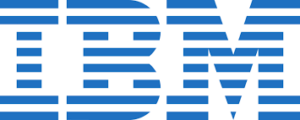






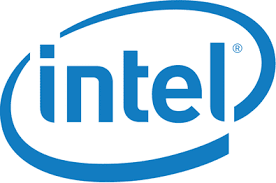
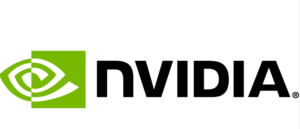



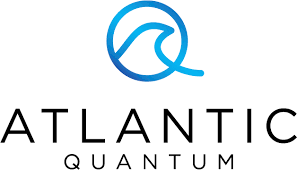




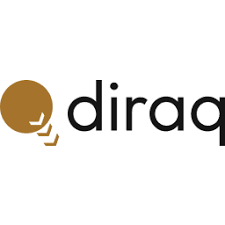
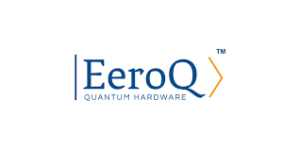



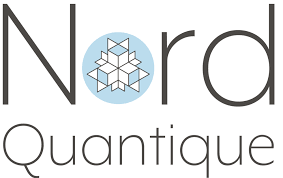
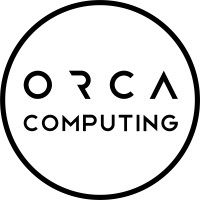
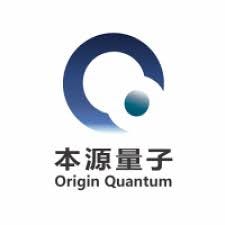





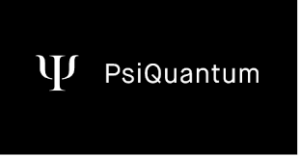

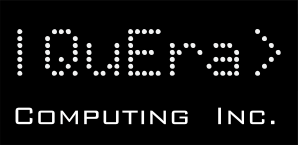

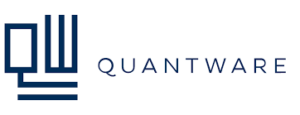
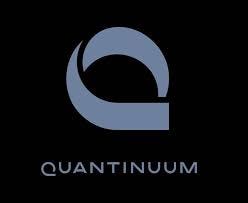
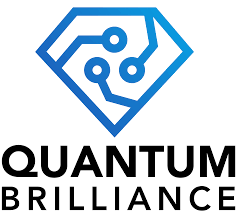
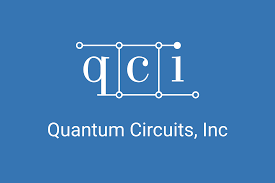


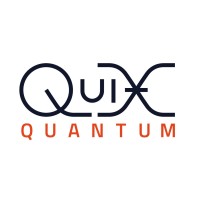





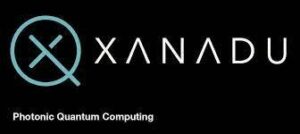




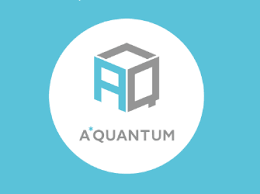

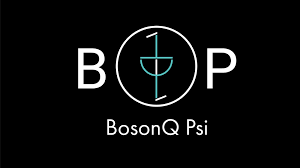

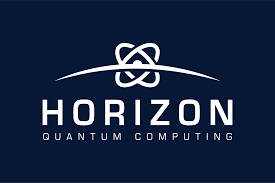
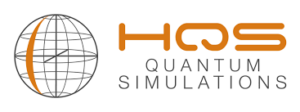



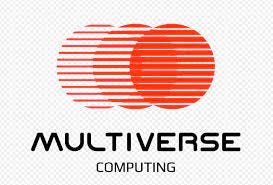



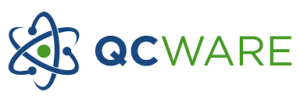



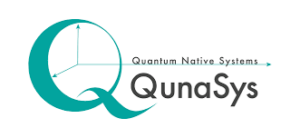




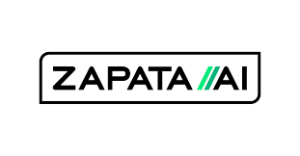
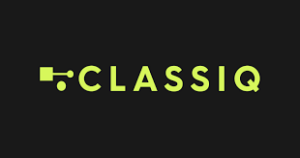
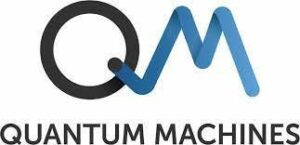

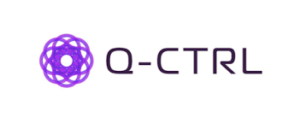


Thank you for your sharing. I am worried that I lack creative ideas. It is your article that makes me full of hope. Thank you. But, I have a question, can you help me?